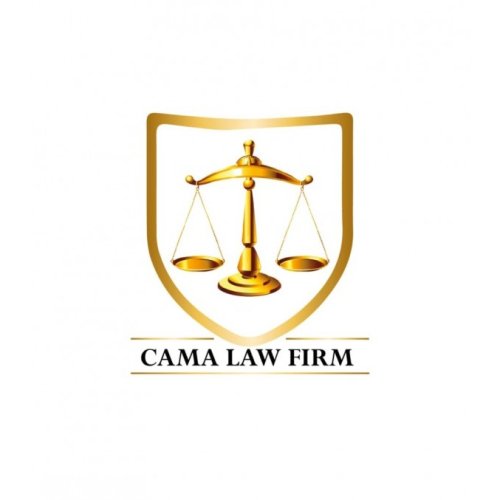Best Military Law Lawyers in Cameroon
Share your needs with us, get contacted by law firms.
Free. Takes 2 min.
Or refine your search by selecting a city:
List of the best lawyers in Cameroon
About Military Law in Cameroon
Military Law in Cameroon governs the conduct, rights, and duties of personnel in the Cameroon Armed Forces. It encompasses the legal framework within which military operations and service are conducted, including codes of conduct, military justice procedures, and disciplinary measures. This branch of law ensures military personnel comply with national laws and military regulations, while also maintaining order and discipline within the armed forces. The legal framework is a combination of national legislation, the military code of justice, and international military agreements to which Cameroon is a signatory.
Why You May Need a Lawyer
Individuals may require legal assistance in military law for various reasons, including:
- Disciplinary Actions: Facing charges under the military justice system can be complex, requiring experienced legal representation to navigate the proceedings.
- Discharge and Appeal: Disputes about terms of discharge, wrongful termination, or needing to appeal a military decision often necessitate legal intervention.
- Military Service Obligations: Understanding one's rights and obligations concerning mandatory military service or reserve duties might demand clarification and support from a lawyer.
- Court Martial Defense: Defending oneself in a court martial trial involves specialized knowledge of military law which is beyond the purview of laypersons.
- Veterans’ Benefits: Obtaining entitled benefits or addressing grievances related to medical care or retirement benefits often requires legal advocacy.
Local Laws Overview
Key aspects of military law in Cameroon include:
- Military Justice Code: Establishes the legal framework for dealing with offenses committed by military personnel, including detailed procedures for prosecution and adjudication.
- Disciplinary Regulations: These define the standards of conduct expected from military personnel and the repercussions for breaches of conduct.
- Service Obligations: Outlines the duration, expectations, and legal implications of mandatory military service for eligible citizens.
- International Treaties: Cameroon’s military law is also informed by international conventions and agreements affecting military operations, prisoners of war, and human rights.
Frequently Asked Questions
What constitutes a military offense under Cameroon's military justice system?
Military offenses include misconduct such as insubordination, desertion, acts of violence against civilians, and breaches of military ethics and honor.
Can a civilian be tried under the military law in Cameroon?
Typically, military law applies to active military personnel. However, under specific conditions, like martial law or when civilians are implicated in military operations, they may be subjected to military jurisdiction.
What is the process for appealing a court martial decision?
An appeal involves a hierarchical process within the military justice system, where the decision can be contested before superior military courts or judiciaries with competent jurisdiction.
How does international law interact with Cameroonian military law?
International laws, to which Cameroon is a party, can influence military law, especially concerning human rights, rules of engagement, and treatment of prisoners of war.
Do reservists have different legal rights compared to active-duty personnel?
Yes, reservists are subject to laws and obligations distinct from active-duty personnel, especially concerning activation, deployment, and civilian employment rights.
How are military personnel’s civil rights protected during active duty?
Military law aims to balance the efficacy of military operations with the individual rights of personnel, ensuring protections under the national constitution remain intact.
Are there legal support strategies for families of military personnel facing legal issues?
Families can seek legal advice via military legal assistance programs, ensuring they are informed and supported during legal proceedings involving their family members.
What’s the role of military legal advisors in Cameroon?
Military legal advisors provide counsel on legal matters affecting military operations, ensuring compliance with both domestic and international laws.
Are there specific legal considerations for peacekeeping missions?
Yes, peacekeeping missions require adherence to international laws and host nation agreements, often involving specialized legal guidelines regarding engagement and conduct.
How can I ensure my rights are protected if accused of a military offense?
Engaging a lawyer specializing in military law is crucial to navigating accusations, ensuring adherence to legal standards, and protecting personal rights throughout the legal process.
Additional Resources
For additional support and information, consider reaching out to:
- Cameroon Ministry of Defense: Provides access to military judicial information and procedures.
- National Veterans’ Affairs Office: Assists with veteran benefits and related legal issues.
- International Committee of the Red Cross (ICRC): Offers guidance on international humanitarian laws applicable to military operations.
- Legal Aid Organizations: These can offer pro bono assistance or lower-cost services for military personnel facing financial challenges.
Next Steps
If you need legal assistance related to Military Law in Cameroon, consider the following steps:
- Consult a Military Lawyer: Seek a qualified attorney with expertise in military law for a consultation to assess your situation and explore legal options.
- Gather Relevant Documentation: Compile all documents related to your case, including service records, legal notices, and communications, to provide your lawyer with comprehensive insights.
- Engage with Your Command: In some instances, communicating with your commanding officers or legal advisors within the military can provide pathways for internal resolution.
- Research Your Rights: Familiarize yourself with both national military law and applicable international laws to better understand your legal standing.
- Explore Mediation or Alternative Dispute Resolution: In cases where possible, seeking alternative dispute resolutions may offer less adversarial and quicker results.
Lawzana helps you find the best lawyers and law firms in Cameroon through a curated and pre-screened list of qualified legal professionals. Our platform offers rankings and detailed profiles of attorneys and law firms, allowing you to compare based on practice areas, including Military Law, experience, and client feedback.
Each profile includes a description of the firm's areas of practice, client reviews, team members and partners, year of establishment, spoken languages, office locations, contact information, social media presence, and any published articles or resources. Most firms on our platform speak English and are experienced in both local and international legal matters.
Get a quote from top-rated law firms in Cameroon — quickly, securely, and without unnecessary hassle.
Disclaimer:
The information provided on this page is for general informational purposes only and does not constitute legal advice. While we strive to ensure the accuracy and relevance of the content, legal information may change over time, and interpretations of the law can vary. You should always consult with a qualified legal professional for advice specific to your situation.
We disclaim all liability for actions taken or not taken based on the content of this page. If you believe any information is incorrect or outdated, please contact us, and we will review and update it where appropriate.
Browse military law law firms by city in Cameroon
Refine your search by selecting a city.










